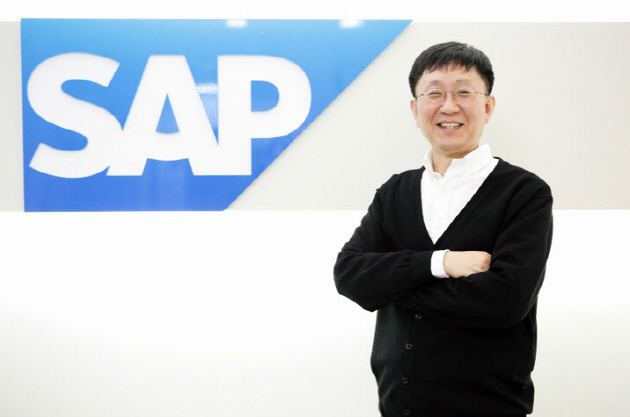
Professor CHA Sang Kyun
“Why don’t students pursue greater accomplishments?” asked Professor CHA Sang Kyun (Dept. of Electrical and Computer Engineering) regarding the current situation in Korea’s academia, “I think it is because we lack the support system for those who do.”
Professor Cha, the Director of SNU Big Data Institute, is one of the leading experts on “big data” and is the co-developer of in-memory database technology “SAP HANA”. The technology has been hailed as a breakthrough in the industry as it processes large volumes of data in real time, which dramatically reduces the time it takes for data analysis. Along with his accomplishments, Cha is one of the professors at SNU active in giving back to the community and providing students with the opportunities to realize their academic and professional pursuits. Since 2000, Professor Cha has donated KRW 1 billion to SNU. Regarding his donations, he stated, “In order to cultivate creative talent that will lead global corporations such as Google, there should be support from alumni who have already had success.” From his experience in the US, he concluded that the reasons behind that country’s success lay in its ability to produce a constant stream of talent.
As a Ph. D. graduate of Stanford, Professor Cha credited investment in future generations, such as through alumni contributions, as the key factor in developing new talent. “Due to the tremendous amount of scholarship funds donated by graduates, Stanford students are able to challenge themselves and pursue their dreams without difficulty. Those who succeed will probably donate back to the school as their seniors have done.” This positive cycle of unwavering support encourages students to freely pursue their goals without limitations. Professor Cha attributes his success to the similar type of support that he received for his startup company.

Bloomberg reported the grand success of SAP HANA in the global market
During the course of his research for his doctorate thesis on artificial intelligence, Professor Cha became interested in big data analysis, which eventually led to his research startup company Transact in Memory (TIM). Despite its cutting edge technology, the big data expert’s small startup company did not draw much interest and failed to secure investors in Korea. It was only when he moved back to the US that he received interest in his work in TIM. Instead of relying on conventional developments in technology made by multinational corporations and universities, the technology industry in the US valued young startup companies that possessed a wide array of talent and fresh new ideas. In 2005, TIM was acquired by SAP, one of the market leaders in enterprise application software.
Although eleven years have passed since Professor Cha’s success with SAP HANA in the US, Korea remains an uninviting environment for startup companies. Professor Cha hopes to develop the SNU Big Data Institute into an environment that provides full confidence and support for aspirational young students regardless of their discipline of study. “In order to effectively utilize big data, we need to be asking questions about our world and society. These questions are not simply limited to those of a STEM background, but should also include the perspectives of students from the humanities and social sciences. We will leave the door to the Institute open for anyone interested in big data, irrespective of their academic background.”
Written by Yun Hwan Chae, SNU English Editor, yunhwanchae@snu.ac.kr
Reviewed by Professor Travis Smith, Department of Asian Languages and Civilizations, tlsmith@snu.ac.kr

